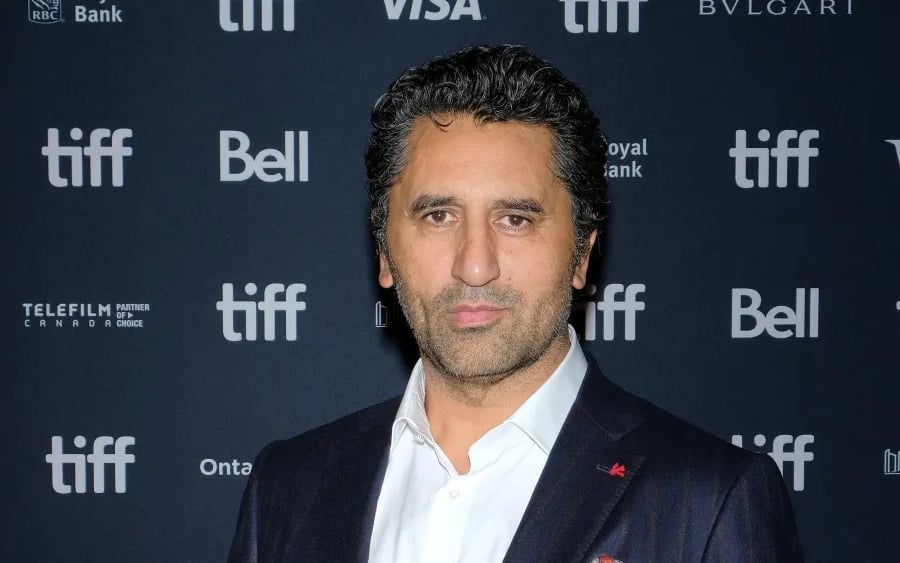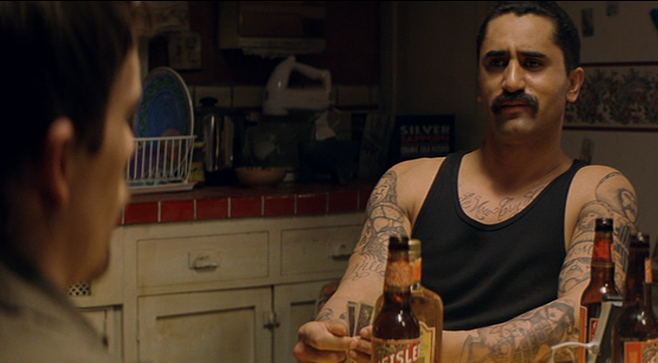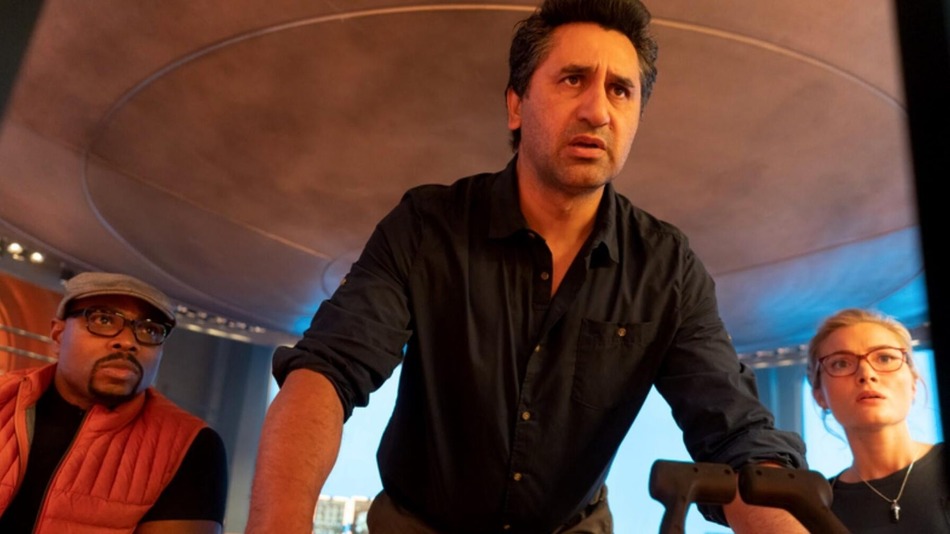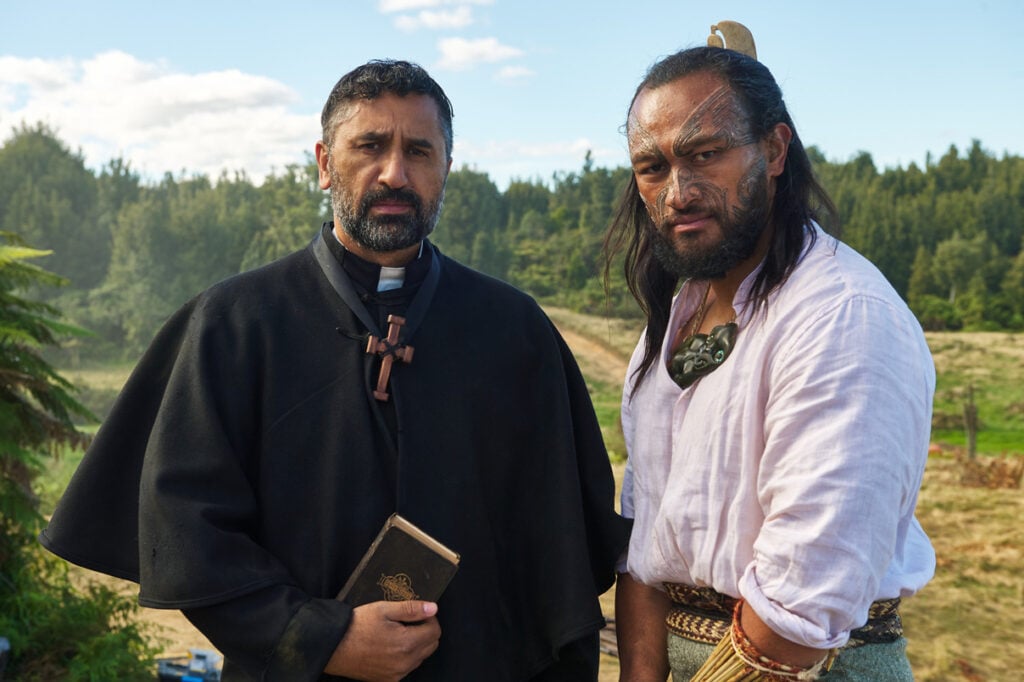He’s appeared in some of Hollywood’s biggest blockbusters, but Cliff Curtis does little to make it obvious.
Sitting in his car outside a Rotorua café where his family are waiting with breakfast after Saturday morning sports, the actor couldn’t be more casual while discussing his roles in iconic films such as Avatar: The Way of Water and Training Day.
For just over three decades, Curtis has picked his acting jobs carefully, carving out an outstanding credits list that’s a mixture of major franchises and more personal, substantial films. There could have been many more roles to his name, but he never abandoned his integrity for the sake of a project.
“If you look at movies like ‘Die Hard’ or ‘Fracture’, that came from me turning down at least one dozen roles as a terrorist,” Curtis says. “I just didn’t want to get stuck in that.”
Instead, the Rotorua-born star found an ideal middle ground between big-budget Hollywood productions and meaningful homegrown hits, both of which still required him to create something of his own within the role.
“I feel as a creative, I’m suited to playing complex characters with a bit going on,” he says. “I do appreciate a role that’s got some more dimension to it and it’s more challenging. I’m sort of built for those kinds of roles, but those roles aren’t always readily available. Sometimes those roles are more elusive or there are fewer of them and they’re further in between, but I do keep an eye out for them.”
Even in films where he wasn’t a core cast member, Curtis always made sure he brought something extra to the table.
Love Music?
Get your daily dose of everything happening in Australian/New Zealand music and globally.
“When I choose a functional role, where it’s very much a supporting role, I do try to triangulate – ok cool, is that character going to help tell the story? Is that character going to advance the narrative? Are they essential to the story and to the protagonist narrative for the story to evolve?”
The best example, he says, is Training Day, the Denzel Washington-starring 2001 crime thriller. Although Curtis’ role as Smiley didn’t have a lot of screen time, his character’s existence was still crucial to the overall narrative.
“I pretty much just had two scenes – it’s one kind of one scene that goes on a bit and it goes from one room to another – but essentially it’s one scene divided by two rooms. There’s a beginning and a middle and an end as an arc, and without that character, the protagonist’s arc wouldn’t be complete,” Curtis explains.
He points to The Meg (2018) as another “functional” role where the character is a necessity but not perhaps the most important. “That’s a popcorn franchise where it’s about going to watch a big shark and for some audiences, that’s the best movie ever made.”
As an auditioning actor in Hollywood, Curtis has experienced it all. “[Sometimes] they’ll send me dummy pages which are not actually in the movie, which are not actually the role I’m reading for the movie, or they’ll offer me a movie and they won’t let me read the script… it’s kinda odd,” he reveals, but the manner in which he secured a role in Avatar: The Way of Water couldn’t have been more different.
“His people call me to say he [director James Cameron] wants to have a Zoom call with me, I have a Zoom call and he offers me four movies on a single call. There’s no audition, there’s no jumping through hoops, he’s just calling and offering me the role for like four movies. Yes, it’s a functional role, but it’s an essential role in the storytelling and very much a supporting role, but that’s pretty great, right?”
Curtis may not make as many films back home in Aotearoa, but he tries to put one out at least every five to 10 years.
“There’s not a huge amount of depth in what I do in those franchises,” he admits, “so then when I get the opportunity to play other roles, back home primarily, I try to be more conscious about what’s going on. I try to choose something that is purposeful.”
There’s one New Zealand film that Curtis’ name is often associated with most: Once Were Warriors. Lee Tamahori’s explosive 1994 drama is rightly regarded as an iconic piece of the country’s cinematic history, but Curtis, who portrayed the despised Uncle Bully, is conflicted about his connection with the film.
“It was a small role that I didn’t like. In the context of how I experienced ‘Once Were Warriors’, there was no way to know what it was going to become or what it became in the landscape of New Zealand cinema.
“The impact of it, because of the role, it gave me a great opportunity. If you’re an actor and you go over to Hollywood – you go back 30 years now – there’s not a lot of New Zealanders going over, so it gave me a way into getting more work, that’s really what it was.
“As I broadened my scope and my range as an actor, it became a really important stepping stone towards being able to do more diverse roles.”
Curtis never felt destined to make it to Hollywood in his younger days. His first inroads into the arts came at the age of 12 through Kapa haka and Mau rākau with his mentor Mita Mohi. He also did a bit of breakdancing in the ’80s.
“I wasn’t that great but it was something to do,” he says, describing himself as a “rough diamond” during that time. “I barely read or anything. I went and worked as a labourer for about five years from the age of 14 to 19, so I was sort of a semi-tradesman but at the bottom end of the scale.
He took meaningful steps to launch his career by attending drama school at Toi Whakaari, before finding his feet as an actor in theatre musicals and plays. His first film role arrived in 1993 when he played Mana in another classic of Aotearoa cinema, The Piano.
Over the next decade he appeared in films alongside major stars like Harrison Ford, Jamie Lee Curtis and Nicolas Cage, before making waves back home in 2002 with the acclaimed Whale Rider.
The success of the Niki Caro-helmed film only encouraged his dual approach to contributing artistically to both local and international projects. “I really appreciate the art and the craft of what I do and collaborating with other great storytellers,” he says.
“I’m looking for stories that reflect the place where I live and the people I live with and my family and my culture and my tribal affiliations, that’s just really key to who I am,” he says of working in his home country. “I get to play leads in movies when I’m home in New Zealand and [in] projects overseas, I get to play supporting roles. It’s really the culmination of all of those different experiences that really define me as an actor.”
The perfect example of Curtis’ ethos is his latest Aotearoa film, Ka Whawhai Tonu – Struggle Without End, a historical drama centred around the Battle of Ōrākau. He wanted to get involved in the film in order to support local storytelling, as well as back director Mike Jonathan, someone who has been working in the industry for a similar timeframe. (Curtis executive produced Jonathan’s first short film.)
“This is not a popcorn movie, it’s really about telling a challenging story,” he says. “I think it’s healthy to tell these stories – I support telling stories that have got a historical relevance.”
Much has been made over the years about Curtis’ chameleonic screen presence – “what it’s like to play every ethnicity Hollywood throws your way,” Slate headlined an interview with Curtis in 2014 – but he’ll always be a Māori storyteller at heart; working on films like “Ka Whawhai Tonu” have helped him value his heritage.
“I get a lot out of being Māori that sustains me in a spiritual or values-based way. It gives me a perspective on the world and on the work that I do – it keeps me coming back to it. No matter how far into the Hollywood machine I go, I always come back home.”
Reflecting back on his entire career, Curtis says there are a number of values he’s grasped tightly which have kept his humility intact despite his consistent success.
“To me, I see it as a triangle. One part is my culture, my heritage, the other part is creativity as an artist, and then the third part is just dealing with the reality of a business and seeing it for what it is.
“Having a context to understand what the business is and having to provide for a family, that settles things way down – that grounds things in a different way.”
Curtis’ last overseas film, last year’s Meg 2: The Trench, made almost $400 million at the global box office; Ka Whawhai Tonu has been well-received at film festivals in Toronto and Sydney. But sitting in his car now in Rotorua, the town where he was born, the classically Kiwi knack for undervaluing one’s talent is evident.
“I don’t need to be the movie star and I don’t need to be the lead to contribute meaningfully to the game or to the story,” Curtis insists. “I guess if it was basketball, I’m like [Dennis] Rodman – he’s not the Michael Jordan of the team, but he’s the guy that’s there to fulfil an important function in the storytelling purpose. I think consistently I’m a bit rough around the edges. I think it puts me in the range of normal. Saturday sports with the kids. I’m a regional guy, and that keeps me pretty grounded.”
From Variety AU/NZ






































